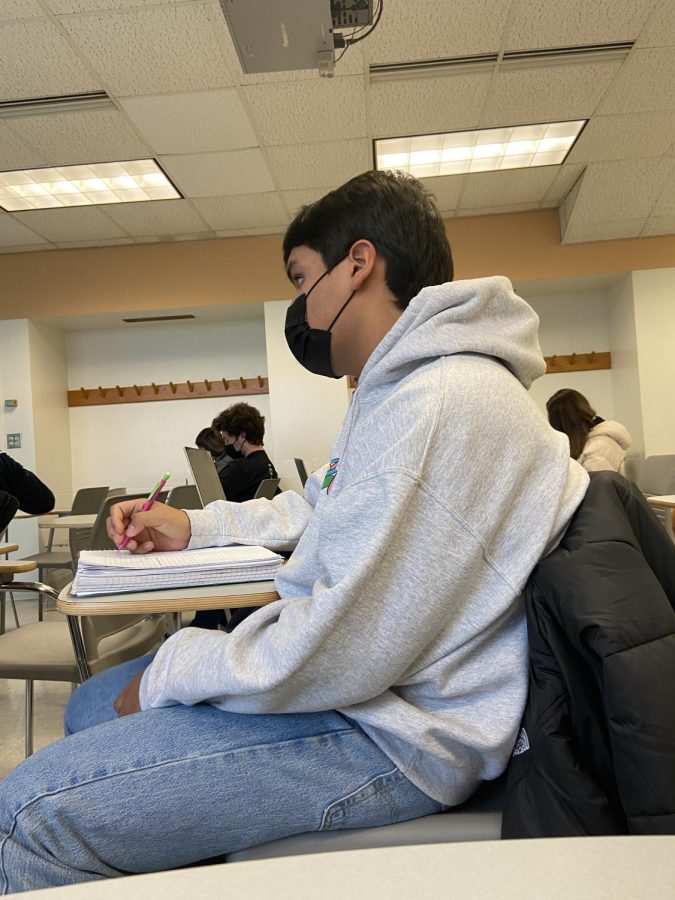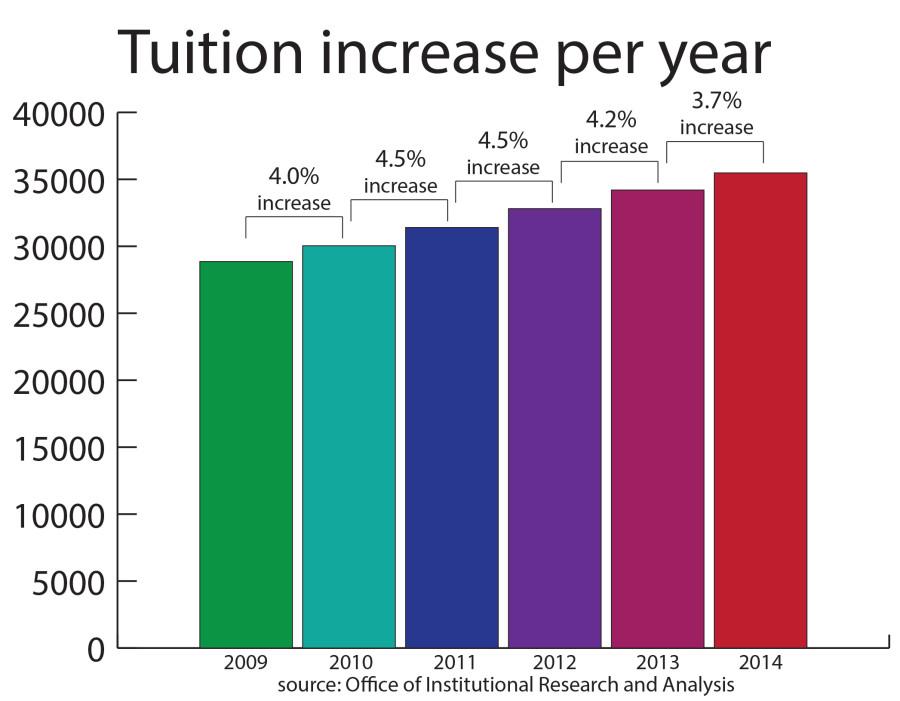In 2020, health care weighs heavy on the minds of Americans. During a global outbreak that’s seen governors ‘competing’ for medical supplies and marginalized communities particularly affected, the conversation has never been more pressing.
Lowering the cost of health care is the top domestic priority among both Democrats and Republicans, according to a joint poll by Politico and Harvard University. Lowering the cost of prescription drugs, another shared belief among Democrats and Republicans, ranks second.
An important caveat: Americans may agree that the system should change but have drastic ideas of how to get there. Some are hitching their wagons to the universal coverage “Medicare For All” plan. Others are opting for more moderate plans such as “Medicare for All Who Want It.”
Still, others want to see generic, inexpensive drugs even out the market through competition with name-brand pharmaceuticals, efforts spearheaded by current Republican leadership.
In 2018, 27.5 million Americans were uninsured in 2018, according to data from the United States Census Bureau. This figure accounts for 8.5% of the U.S. population and represents an increase of those uninsured by nearly 2 million from 2017.
The United States is the only industrialized democracy in the world that does not have universal coverage. Universal coverage refers to health insurance provided or secured by the government of a country. Senator Bernie Sanders’ Medicare For All is a single-payer plan, making it comparable to Canada’s health care system.
Single-payer insurance is just one form of universal health care. Under it, citizens are placed under one health insurance plan implemented by the government. The plan would essentially remove private and employer-based insurance options, which currently cover a majority of Americans. Susan Giaimo, an associate adjunct political science professor at Marquette, says calling single-payer “socialized medicine” is a misnomer; it should be referred to as “socialized insurance.”
“It’s not that (the government) would take over the entire health care system,” Giaimo says. “Doctors would still be in private practice. [Nonprofit] hospitals would still remain nonprofit. … It’s just that there would be only one government insurance.”
As of 2018, Americans spend $3.6 trillion annually on health care, resulting in an average cost of $11,172 per person. Health care spending currently makes up 17.7% of U.S. gross domestic product.
“We’re spending so much more money on health care than we ever have in the past,” Lisa Grabert, a visiting professor with a joint appointment at Marquette University and Georgetown University, says.
Grabert specializes in health policy and worked on Medicare policy for 15 years, spending five and a half of those years on the House of Representatives’ Ways and Means committee, working directly on Medicare bills. The Ways and Means committee is the primary tax-writing committee in the U.S. congress.
On an individual level, the American health care system can be dizzying. Grabert says patients are subject to “surprise billing,” sometimes resulting from getting care from a provider who is not covered by their insurance (an “out-of-system” provider) even if they are at an “in-system” hospital or clinic. Patients often pay for prescription drugs out of pocket because their insurance doesn’t cover a specific drug.
Concerns about the current system have led to proposals on the Democratic debate stage that would introduce major shifts to established institutions.
“We could be due because it’s been about 10 years since the Affordable Care Act was signed into law,” Grabert says. “I don’t know that the temperature necessarily of the country right now … (has) the right political alignment for that, but in 2020 that could all change.”
Grabert says that realistically, the Democrats would likely need a trifecta, or a party control over the presidency, the House of Representatives and the Senate, to try to enact major legislation such as Medicare for All. Democrats currently have a majority in the House; they would need to flip the Senate and win the presidency to secure all three chambers.
Giaimo says even with a trifecta, passage of any proposed health plan far from guaranteed.
“It would require Democrats to take both houses of Congress, get the presidency, and convince their moderate Democrats that this is a good idea,” Giaimo says.
Giaimo teaches courses in U.S. health policy and comparative health politics. The latter of those two compares the U.S. health system to that of other countries. She’s written two books on the subject: Markets and Medicine: The Politics of Health Care Reform in Britain, Germany, and the United States and Reforming Health Care in the United States, Germany, and South Africa: Comparative Perspectives on Health.
Giaimo says that convincing moderate Democrats may be difficult, especially with rising pressure from the pharmaceutical industry and health care providers. Giaimo says it is likely that doctors and hospitals will make less than they do with private insurance, but more than the current payout from Medicare.
Grabert says she’s not ruling out a major change.
“If lawmakers want to do something, they’re going to find a way to do it,” Grabert says. “I don’t say that there’s too many things that can’t be done, because if there’s political will and the desire to kind of take something on as an issue, you will get that done.”
Whether or not the novel coronavirus will impact attitudes on public health remains to be seen.
“I think our country generally doesn’t believe in having a proactive position on anything…” Giaimo says. “…there were simulations done about how we would deal with a pandemic virus, and the report that came out last fall said we were really behind…and nobody did anything at the federal government level.”
President Donald Trump has drawn criticism for his administration dismantling the National Security Council’s global health security team in 2018, and more recently announcing a plan to defund the World Health Organization in the midst of the pandemic.
Giaimo says there are some quagmires in U.S. health policy that are unique to America. For instance, Giaimo says private insurers have agreed to waive costs for testing, but not necessarily for care if someone develops COVID-19.
“Maybe you can get the test for free, but then you’re going to need treatment and you have a high deductible plan where you pay the first 6-10,000 dollars in medical expenses and you end up in the hospital, you could end up in medical bankruptcy pretty quick,” Giaimo says.
Giaimo says the gaps in coverage may be most present in states that did not expand Medicaid, as access to coverage will be a key factor in getting through the pandemic.
Eric Rorholm, a junior in the College of Arts & Sciences, says he’s in favor of Medicare for All. Rorholm is president of the College Democrats and member of Marquette For Bernie, a club supporting the Democratic candidate on Marquette’s campus. Rorholm started supporting Sanders in 2016.
Rorholm says that the novel coronavirus has further highlighted the need for single-payer healthcare, especially in America.
“That’s a big part of why we’re so far behind the eight ball, because the United States has not in a long … time had to face a situation where you have to put health above profit in the short-term or it will destroy you in the long-term, which is where we’re at now,” Rorholm says.
Rorholm especially points to monetized health insurance as a major issue during the pandemic.
“If you don’t have health insurance, your options are go into such severe debt that you risk losing your car or your home or even your kids, or staying at home and potentially dying because you can’t breathe,” Rorholm says.
Rorholm points to discrepancies such as testing, where many Americans need to get a referral for a test that’s already in short supply.
“That’s money, that’s time, that’s assuming you even have a doctor to access,” Rorholm says.
Rorholm says that health care should be a right especially in the “richest country to ever exist on Earth”. He believes that single-payer insurance is a step toward that.
Rorholm cites the importance of single-payer insurance as the bargaining and leveraging power of the American people: Putting everyone under one insurance plan increases the ability to negotiate costs.
“That’s why the cost of health care in the United States is so high,” Rorholm says. “These small, compartmentalized corporations with their own subscribers and their own clients can’t negotiate very well with pharmaceutical companies, with hospitals, with contractors.”
In his agenda, Sanders says “The United States must join the rest of the industrialized world and recognize that health care is a right of all, not a privilege.”
“What Bernie Sanders brings, the revolution of his political thinking, is that human lives matter so much more than the economic bottom line,” Rorholm says.
Rorholm says that the current health care system will cost more in the long run than “Medicare For All”. While it’s currently unclear if Sanders’ plan would be less expensive, the Centers for Medicare and Medicaid Services project that health care spending will reach $6 trillion by 2027 without a change in current law.
Sanders dropped out of the presidential race on April 8, 2020. Days after he suspended his campaign, Sanders endorsed democratic presidential candidate and former Vice President Joe Biden.
While Sanders and other progressives could still attempt the legislation in the Senate, Biden has publicly said he would veto Medicare-For-All if it came across his desk as president.
According to his campaign’s website, Biden’s healthcare plan is to “protect and build on the Affordable Care Act.” The website states the Biden administration would increase the value of tax credits to lower premiums, expand access for low-income Americans, and create a public option like Medicare.
“…the Biden Plan will give you the choice to purchase a public health insurance option like Medicare,” the website says. “As in Medicare, the Biden public option will reduce costs for patients by negotiating lower prices from hospitals and other health care providers.”
Miranda Spindt, president of Young Americans for Freedom and a sophomore in the College of Arts and Sciences, says that the current system is the best fit for the country, “although needing obvious improvement.”
“There should absolutely be health care provided, preferably by local or state governments, when it is needed by those who can’t afford it,” Spindt says in an email. “Local and state governments are better suited to fit the needs of their residents than the distant federal government.”
YAF is a group of students “dedicated to promoting traditional conservative and libertarian views on Marquette’s campus,” according to its Facebook page.
Spindt says fixing the current system is better rather than starting something completely new.
Spindt says the federal government’s role should be to find a “healthy balance” of regulation to take care of citizens while also engendering competition in the industry to provide the best services at the lowest prices. She says that “Medicare For All” and “Medicare for All Who Want It” would be too expensive.
“The trillions of dollars that it costs can’t be covered just by the richest of the rich,” Spindt says in an email.
Spindt says that uprooting the current system would result in higher taxes for a “mediocre health care plan that may never live up to the idea of what it is supposed to be.”
Biden plans on paying for his “Biden Plan” by closing capital gains tax loopholes, which his website claims is the second largest tax expenditure in the country at $127 billion. The Biden administration plans to restore the 39.6% top rate that former president Barack Obama’s administration passed in 2012, effectively doubling the tax rate on capital gains.
One of the foremost concerns with any health care proposal in the future will be staffing. As Grabert describes, the Medicare system is currently taking in 10,000 baby boomers, or individuals born between 1946 and 1964, a day, causing concern that the system may not be able to sustain the influx.
Grabert refers to it as the “silver tsunami.”
Additionally, Giaimo says that for minority communities, access to healthcare, while important, may not be enough.
Maria Bunczak, a senior in the College of Nursing and president of Empowerment, an intersectional feminist organization on Marquette’s campus, echoes this sentiment, saying ZIP code is the #1 determinant of health in America.
“The neighborhood you’re in determines your life expectancy, your odds of being incarcerated, your odds of dying in childbirth, and Marquette is right next to the ZIP code with the lowest life expectancy in the state of Wisconsin,” Bunczak says, referencing the 53206 ZIP code.
The way the coronavirus has affected African-Americans is an example of this. Because of living conditions, African-Americans are more likely to have pre-existing health conditions such as diabetes, asthma and heart disease which can be fatal when combined with the novel coronavirus. This can be attributed to economic hardship and lack of access to healthcare.
“Although African American adults are 40 percent more likely to have high blood pressure, they are less likely than their non-Hispanic white counterparts to have their blood pressure under control,” according to the Department of Health and Human Services.
These underlying conditions have led to African-Americans dying at a disproportionate rate amid the pandemic.
“This whole COVID outbreak really puts stress on an already broken system and helps reveal and show to the public the fractures and cracks that are already present,” Bunczak says.
Bunczak supports Medicare-For-All as a policy, saying that healthcare is a human right. Her first experiences with socialized medicine were when she was studying abroad in Ireland, where she says she received care and was incredulous when the hospital admitted her without needing pay. Bunczak says she hopes the government’s role in the current situation will show people that there are other options for a health care system.
“Through this, people are seeing that socialism is not such a dirty word,” Bunczak says.
Isabella Velazquez is the first-year student representative for the Biomedical Students Association at Marquette. She is a Milwaukee native studying pediatric psychiatry. She hopes to work in Milwaukee, where she says more pediatric psychiatrists are badly needed.
Velazquez was hospitalized during her senior year of high school and placed in an adolescents’ unit at a psychiatric hospital, where she was adjacent to the children’s unit. Although they were separated, Velazquez says the younger kids often got mixed in with the adolescents
“I guess for me that really opened my eyes like ‘Wow, it’s not just about depression and anxiety,’” Velazquez says. “All of those are very important issues, but there’s so much more that little children have no control over, and they’re dealing with these problems with no choice.”
She says the children, some as young as four or five years old, are often “forced into that way of life.” Some deal with complications from their parents using drugs, resulting in congenital ADHD or anger issues.
Velazquez says that the majority of patients at behavioral health hospitals are white, and it’s not because black and Latino citizens aren’t experiencing the same problems. In some cases, it’s a lack of access; in others, “medical mistrust,” she says. The mistrust stems from racism; Velazquez cites the Tuskegee syphilis study as a prime example of why the mistrust exists.
The study began in 1932, involving 600 black men — about 400 who had syphilis and 200 who did not — who were told that they were receiving treatment for “bad blood,” an amorphous term that covered syphilis, anemia and fatigue among other illnesses. In reality, the Public Health Service was documenting the effects of untreated syphilis. In other words, the men weren’t being treated. The program was supposed to end after six months. It lasted 40 years. An Associated Press story in 1972 caused a public outcry. An advisory panel reviewing the study called it “ethically unjustified.”
While she doesn’t back a specific health care proposal, Velazquez says she’s in favor of expanding access, especially for minority communities.
“I feel like the first step should just be building awareness, like educating people on the effects of not having health insurance,” Velazquez says. “I think if people would start to realize this is actually killing people, that would encourage people to kind of try and make a change.”












